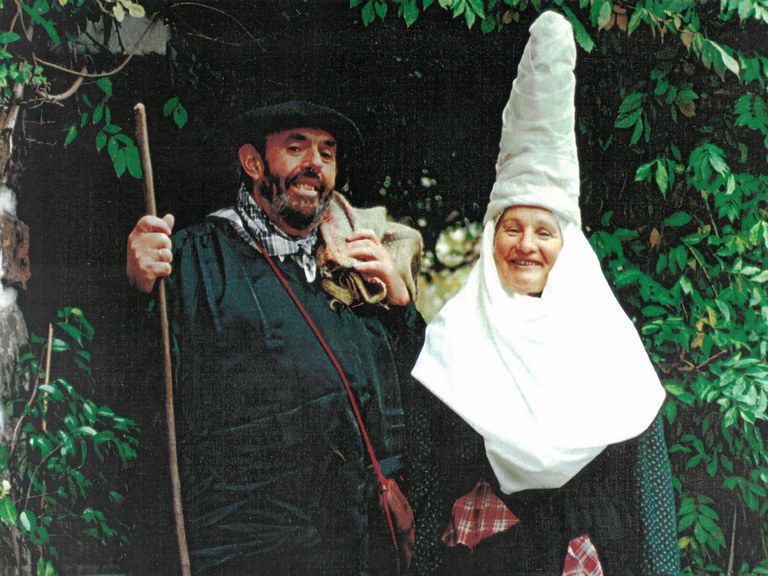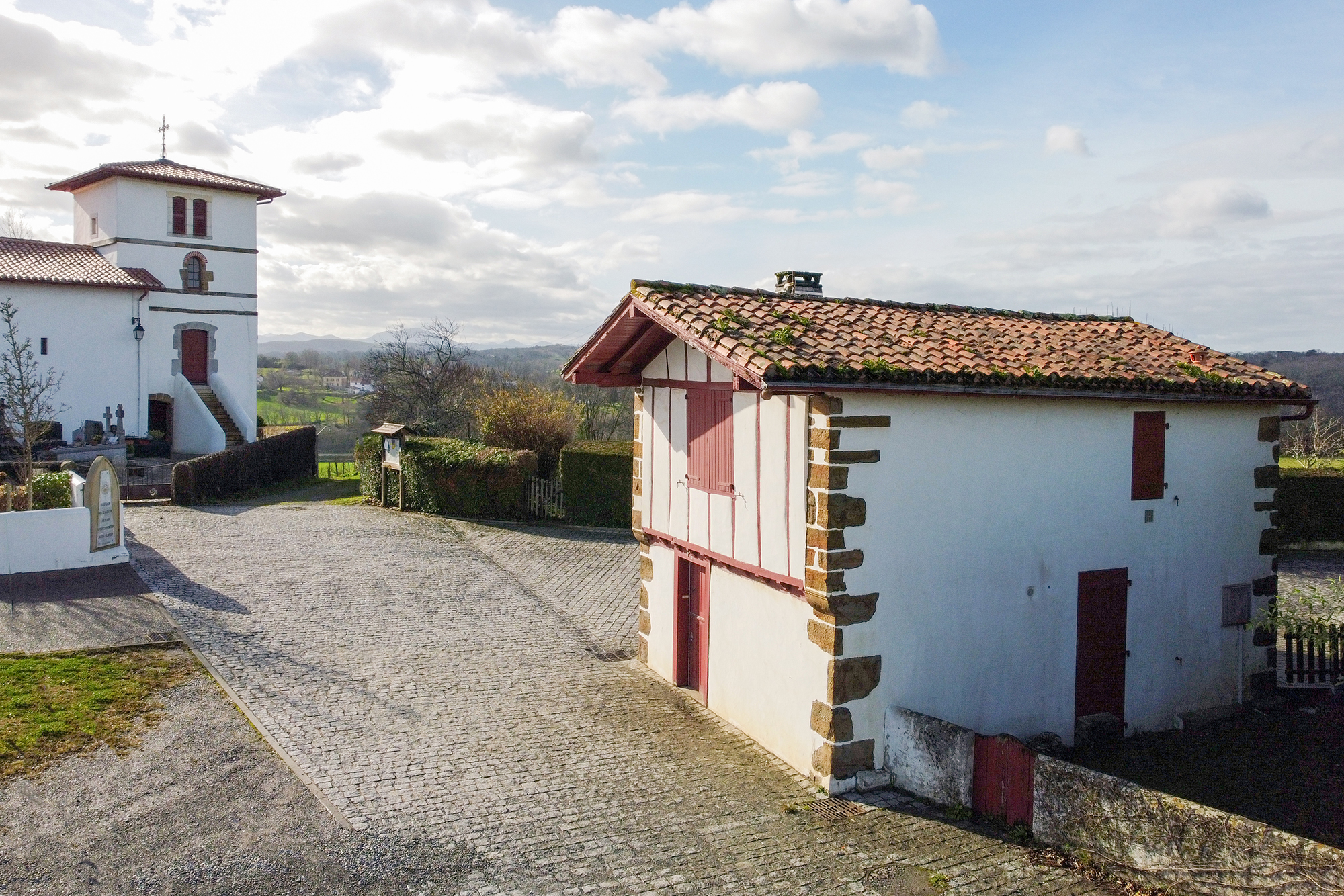"Rice unites us all, it is an element of integration"
- Another year, different Getxo agents have organized for this Sunday, September 15, the Arroces of the World interculturality festival. Taking the streets, celebrating what unites us and talking, are some of the objectives of this initiative. We have spoken with Ruth San Cristobal, the ACPBOL association Lidia Campos and Dani Gutiérrez, of the ONGI collective Etorri Errefuxiatuak, to deepen the subject.

What is Arroces of the World?
Ruth San Cristobal This is a popular initiative started about 20 years ago in the Bilbaíno district of San Francisco. The objective is to reclaim interculturality, to recover the streets and to share for one day the different cultures; in this case, around rice.
Dani Gutiérrez: It started in the San Francisco neighborhood, but year after year it has spread to other locations such as Gernika, Vitoria-Gasteiz, Errenteria, Durango or Getxo. Three years ago we did this here for the first time, thinking that they could be interested in the different associations that exist in the environment. Currently in the coordinator we are: Sortarazi, Amesten, Aisibizia, Argia Cover, Equality, Ongi Etorri Errefuxiatuak, Eskubeltz Eskaut Taldea, ACPBOL and SIKAP.
SCR: Yes, we are members of associations of all kinds; for example, the Amest Association is a member of the Coordinator of Arroces of the World because it allows the participation of people with functional diversity in community actions based on equality.
Why rice as a meeting point?
SCR: Rice is a food present in all parts of the world, cooked by all countries in very different ways, and rice is a basic element for sharing intercultural experiences.
Lidia Campos: Rice is eaten around the world, and in every culture it is done one way or another. So rice is something that unites us all, it's an element of integration.
Why was it decided to take such an initiative at Getxo?
D.G. : The truth is that there is no special reason to do so. Three years ago, since Ongi Etorri Errefuxiatuak, we called for the need for a dignified reception of migrants, and it seemed to us that carrying out such initiatives could be beneficial. It's an excuse to bring diverse people together in one place and promote that interculturality. It's a party, yes, but it's not like the paellas that are made in Getxo. That also has its positive side, but the Arroces of the World festival wants to bring people from all over the world together to show that everyone here has their place.
Making interculturality visible in the streets is important to make it known that coexistence between people from different cultures is possible and possible. What is the current situation of migrants in Getxo?
C.T. : I came to Getxo 19 years ago and I've always been welcomed with open arms. Getxo City Hall also has an immigration technician, something that is rarely seen in a city hall. The reception has been very good and we have always been helped to help in integration. The ACPBOL association has also received the Aixe Getxo Prize for the dissemination of our cultural heritage. And that is that, although we are far away, we have always tried to show our culture to society through the Bolivian carnivals that we celebrated in Itzubaltzeta/Romo. We are very pleased to be able to do so.
And what is the relationship between migrants?
C.T. :It is difficult to integrate, however, with sport is always a good opportunity to foster relations, as demonstrated by the football team of Ladrillo. I always tell those around us that it is necessary to integrate, and to do so, sport, dance and culture offer a unique opportunity. On the other hand, we still have to hear things like "go to your countries", but in general we are very happy here.
Do you claim that we live in a racist society?
C.T. I guess so. Progress has been made, but work still needs to be done. Sometimes there are unpleasant situations, and there are people who think we come to steal the work, and that's not the case. If it were not for the labor of migrants, many fathers and mothers would not be able to work because they should take care of their children and many older people would be in nursing homes. In the case of the latter, they are found in their homes thanks to the labor of the migrants. For example, I've been working in a house for 8 years, and I've looked after three children, and I'm still there.
It should be mentioned that I have the title of Magisterium, I have studied Law for three years and I have also worked as an official. However, after leaving Bolivia and coming to the Basque Country, it has been impossible for me to validate all these titles. In our society, for example, we have engineers and architects, but they all have to work in domestic services.
What difficulties do you have in finding a job?
C.T. :Validation to a large extent of titles. In Bolivia it is very difficult and it must be done on a personal basis. Furthermore, bureaucracy is impossible. It is therefore very difficult for us to have the roles we need for a job related to the training we have received. However, I do not complain, I am very happy with the work done.
What would you tell people to participate in the World Rice Festival this Sunday?
D.G. :That fear be removed and encouraged, alone or among friends, to share the values we want to spread. After all, that is what we are looking for: adding up the largest number of people in the village in order to represent coexistence.
The word friend has many meanings in Basque. It can be a person, a member, a neighbor, a camera, an helper, a couple, a friend. In short, they tell us that he is a travel companion throughout life or at specific times, helping us along the way. Accompaniment, sometimes others do... [+]
Now you hear more about the issue of romantic love, and also, and fortunately, critically. In the end, we have begun to analyze in depth the issue of affective sexual relations, the great expectations we make about what should be and should be a relationship of couple, the... [+]
We present education as indispensable for social transformation. Children and young people who will build the society of the future (transforming the present and the future as if it were not in the hands of adults...) is a way to move away from oppressive thoughts, attitudes and... [+]




















